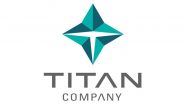A coalition of 16 European media outlets conducted a year-long investigation into financial documents related to companies registered in Luxembourg. The investigation found that 90% of the companies registered in the country are owned by non-residents, and these offshore companies saw investments amounting to 100 times the country’s GDP in the 2018-2019 fiscal year, which has led to accusations of the country being one of the world’s biggest tax haven.
Luxembourg is a small landlocked European country with a size approximating the US state of Rhode Island. The country’s relatively lax regulations, stable government, and business-friendly tax code make it an attractive spot for companies and rich individuals seeking to offshore financial assets.
In 2018, the European Union voted in favor of a directive that forced all EU member states to create public registers with the real owners of companies registered within their borders. Late in 2020, the US also implemented similar transparency measures, approving the NDAA which will force American LLCs to disclose their true owners to governmental institutions. This change at the federal level will not impact state-level legislation, which means LLCs registered in Wyoming and other states can still remain anonymous, but it is a step in the right direction.
The decisions were largely a result of a global push for more financial transparency, which gained traction after a decade of financial scandals within the EU and around the world. Scandals like the Panama Papers, which connected European shell companies to criminal activities, tax fraud, and money laundering schemes around the world.
“Luxembourg was one of the first to apply the European directive, making its register public in autumn 2019,” explained Lemonde.fr, a major French publication that was part of the coalition that investigated the country. “In a way, it is therefore paying the price of transparency.”
The collation of media outlets looked at over 4 billion financial documents related to the Luxembourg registry. It found that the country has companies belonging to a vast number of celebrities and business magnates from around the world, who were likely attracted by the favorable tax legislation.
“On a territory of 2,586 km2, Tiger Woods and the Hermes family rub shoulders with Shakira and the Crown Prince of Saudi Arabia. Hundreds of multinationals (LVMH, Kering, KFC, Amazon, etc.) have opened financial subsidiaries there,” Le Monde wrote, another outlet involved in the investigation.
This is not the first time that Luxembourg has been in hot waters under accusations of aiding tax evasion and being a tax haven. In 2014, a series of documents made public in the LuxLeaks investigation revealed that the country had been offering ultra-advantageous tax arrangements for large multinational companies.
The more recent investigation, dubbed OpenLux, also pointed out that local institutions appear to be poorly equipped to handle the vast number of offshore companies operating in the country.
“[The government’s] services seem to be more calibrated to the size of the country than to its offshore activity,” wrote Lemonde.fr. “The trade register has only 59 employees to enforce the legal obligation to declare the actual beneficiaries of more than 100.000 entities and to carry out an initial control of the declarations. The Financial Sector Supervisory Commission (CSSF) has only 900 employees, even though the financial sector accounts for a quarter of the country’s economy.”
The government of Luxembourg, headed by the Grand Duchy, already released a statement refuting accusations made by the investigation. The official statement, made in French, said that the country is compliant with all EU and international regulations and is continuously updating its arsenal of measures to prevent money laundering and other financial crimes.













 Quickly
Quickly





















